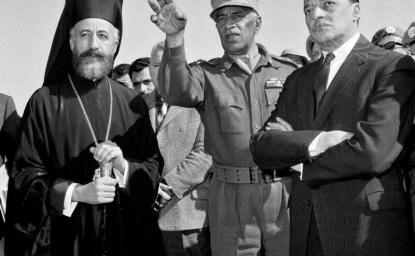For many commentators, writers, and historians, Lyndon Johnson remains “the ugly American," someone inept to conduct foreign affairs, and consumed by the Vietnam War. In his latest book, Lyndon Johnson and Europe: In the Shadow of Vietnam, Thomas Alan Schwartz attempts to revise that perception, suggesting that LBJ's conduct of diplomacy in Europe deserves recognition as one of the most important achievements of his presidency.
Schwartz, associate professor of history at Vanderbilt University, argues that it was Johnson who initiated detente with the Soviets, steered the Germans towards detente, kept the British from withdrawing their troops from East of Suez and prevented De Gaulle for undermining the North Atlantic alliance.
Based on newly released evidence from the U.S., Germany, Britain and France, as well as recently declassified telephone and Oval Office conversations, Lyndon Johnson and Europe, In the Shadow of Vietnam examines the alliance politics of the LBJ Administration.
Book Launch Event
The CWIHP seminar, co-sponsored with the Wilson Center's West European Studies Program, will take place on June 5, 2003, from 1:30 p.m. to 3:00 p.m., at the Woodrow Wilson Center in Washington, DC.
RSVP for this event.
About the Author
Thomas Alan Schwartz is an associate professor of history at Vanderbilt University in Nashville Tennessee. Originally from Rochester, New York, Schwartz has studied at Columbia, Oxford, and Harvard University, where he completed his doctoral degree. Along with many articles and papers, he is the author of America Germany: John J. McCloy and the Federal Republic of Germany (1991). He has been a fellow of the Woodrow Wilson Center, the German Historical Institute, the Center for the Study of European Integration in Bonn, and the Robert Penn Warren Center for the Humanities at Vanderbilt. He is currently writing a book for Rowman & Littlefield's Critical Issues series titled, The Long, Twilight Struggle: A Concise History of the Cold War.




